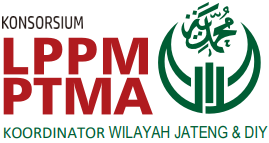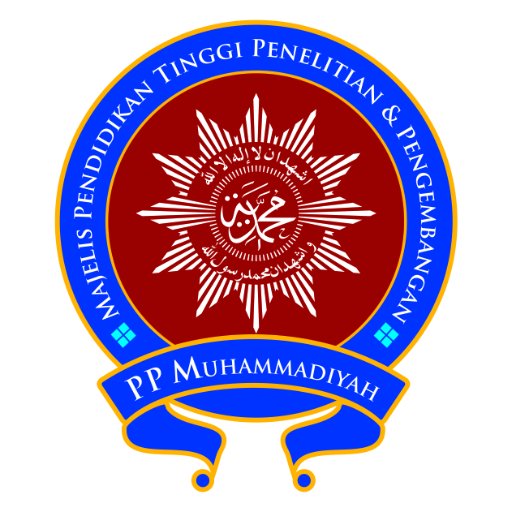The Effectiveness of Expressive Writing Therapy in Reducing Anxiety in Children Victims of Bullying at SMP Negeri 1 Mojotengah Wonosobo in 2021
DOI:
https://doi.org/10.53017/ujas.161Keywords:
Expressive Writing Therapy, Anxiety, Bullying victimAbstract
Expressive writing therapy is the one of therapy which use writing to reflect cognition and depth affection about traumatic or unpleasant experience. Expressive writing therapy is carried out with psychotherapy or other counseling approaches that can be done individually and in groups. This research is aimed to investigate the effectiveness of expressive writing therapy in order to reduce anxiety in children who are victims of bullying. The method used is an experiment reseatch which uses Pretest Posttest Control Group design with 46 subjects participated by using Purposive Sampling. The normality of data was used with Mann-Whitney U-Test test using IBM statistics 21 for windows. Data were collected using anxiety scale from Hamilton Rating Scale For Anxiety (HARS). The results of Mann-Whitney U-Test show a result with Asymp. Sig (2-tailed) 0,002 (p< 0,05) which proves the effectiveness of expressive writing therapy in order to minimizing anxiety on the bully-victims all students in junior high school in Mojotengah.
Downloads
References
D. P. A. Purnamarini, T. I. Setiawan, and D. R. Hidayat, “PENGARUH TERAPI EXPRESSIVE WRITING TERHADAP PENURUNAN KECEMASAN SAAT UJIAN SEKOLAH (Studi Kuasi Eksperimen Terhadap Siswa Kelas XI di SMA Negeri 59 Jakarta),” Insight: Jurnal Bimbingan Konseling, vol. 5, no. 1, p. 36, 2016, doi: 10.21009/insight.051.06.
M. R. Alisah Lusi, “Memahami Pengalaman Cyberbullying Pada Remaja,” Studi Fenomenologis Memahami, vol. 1, no. 1, pp. 1–12, 2018.
E. Z. Zakiyah and M. B. Humaedi, Sahadi Santoso, “Faktor Yang Mempengaruhi Remaja Dalam Melakukan Bullying,” Prosiding Penelitian dan Pengabdian kepada Masyarakat, vol. 4, no. 2, pp. 324–330, 2017, doi: 10.24198/jppm.v4i2.14352.
OECD, “Programme for international student assessment (PISA) results from PISA 2018.,” Oecd, pp. 1–10, 2019.
S. M. Swearer and S. Hymel, “Understanding the psychology of bullying: Moving toward a social-ecological diathesis-stress model,” American Psychologist, vol. 70, no. 4, pp. 344–353, 2015, doi: 10.1037/a0038929.
A. K. Harahap, Gambaran Tingkat Kecemasan Pada Remaja Korban Cyberbullying Di Kota Medan. Medan: Universitas Sumatera Utara, 2017.
N. D. Mian and A. S. Carter, “Recognition and Assessment of Anxiety & Depression in Early Childhood,” Encyclopedia on early childhood development, pp. 1–6, 2014.
H. T. Fikri, “Pengaruh Menulis Pengalaman Emosional Dalam Terapi Ekspresif Terhadap Emosi Marah Pada Remaja,” HUMANITAS: Indonesian Psychological Journal, vol. 9, no. 2, 2012, doi: 10.26555/humanitas.v9i2.339.
K. A. Baikie and K. Wilhelm, “Emotional and physical health benefits of expressive writing,” Advances in Psychiatric Treatment, vol. 11, no. 5, pp. 338–346, 2015, doi: 10.1192/apt.11.5.338.
S. Niman, M. Saptiningsih, C. Tania, S. Tinggi, I. Kesehatan, and S. Borromeus, “Kecemasan Remaja Korban Bullying Effect of Expressive Writing Therapy Towards the Level of Anxiety Analysis of Victims of Bullying,” Jurnal Keperawatan Jiwa, vol. 7, pp. 179–184, 2019.
A. A. Larasati, “Hubungan Antara Korban Bullying Dengan Prestasi Belajar Pada Remaja Usia 12-15 Tahun Di SMP Negeri 15 Yogyakarta,” UMY Repository, vol. 18, no. 2, p. 112, 2016.
sumardjono Nunung, “Hubungan antara kebutuhan berkuasa dan tindakan bullying,” pp. 1–10, 2010.
K. Z. Saputro, “Memahami Ciri dan Tugas Perkembangan Masa Remaja,” Aplikasia: Jurnal Aplikasi Ilmu-ilmu Agama, vol. 17, no. 1, p. 25, 2018, doi: 10.14421/aplikasia.v17i1.1362.
G. M. Wekoadi, M. Ridwan, and A. Sugiarto, “Writing Therapy Terhadap Penurunan Cemas Pada Remaja Korban Bullying,” Jurnal Riset Kesehatan, vol. 7, no. 1, p. 37, 2018, doi: 10.31983/jrk.v7i1.3232.
Y. Susilowati, “Pengaruh Kegiatan Menulis Pengalaman Emosional Terhadap Penurunan Perilaku Agresi Narapidana Di Lembaga Pemasyarakatan Wanita Kelas IIA Malang,” Universitas Negeri Malang, 2013.
R. O. Saputri, A. Prabowo, and Wijayanti, “Pengaruh Terapi Menulis ekspresif Terhadap Penurunan Stress Pada Remaja,” Jurnal Diii Keperawatan Its Pku, 2019.
Reni Susanti, “Pengaruh Expressive Writing Therapy Terhadap Penurunan Tingkat Kecemasan Berbicara Di Muka Umum Pada Mahasiswa,” Jurnal Psikologi, vol. 9, p. 121, 2013.
R. Mustikasari, “Efektivitas Expressive Writing Untuk Menurunkan Kecemasan Pada Mahasiswa Fresh Graduate Yang Sedang Mencari Kerja,” Computers and Industrial Engineering, vol. 2, no. January, p. 6, 2018.
Downloads
Published
How to Cite
Issue
Section
License
Copyright (c) 2022 Sekar Lakshmi Prameswari, Reni Mareta, Septi Wardani

This work is licensed under a Creative Commons Attribution-NonCommercial 4.0 International License.





